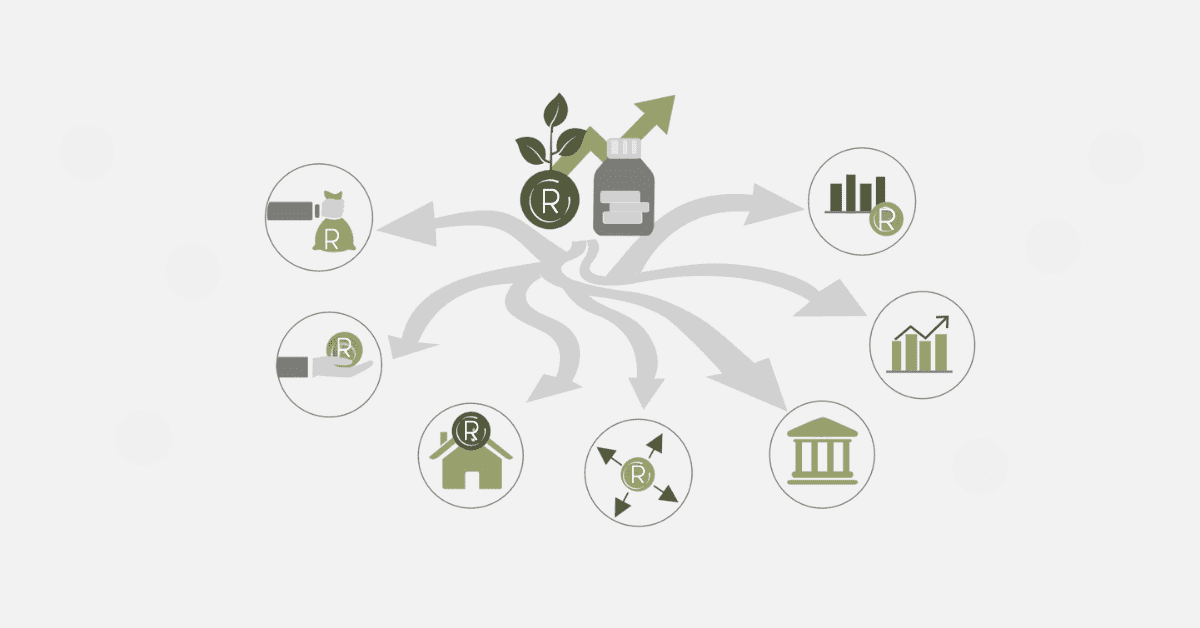No doubt, venturing into US shares, which are some of the best options, allows South African investors to diversify into some of the leading companies in the world. Buying US shares from South Africa is much easier now than ever, with technological advances and online trading platforms that make the process speedy and efficient. In this regard, the article unfolds with a step-by-step approach to answering some of the most critical questions on investing in US stocks within the specific context for South African investors.
Can a South African Buy US Stocks?
It is easily possible for a South African to purchase US stocks. The process, which is entirely legitimate and popular amongst financial institutions and online trading platforms, is within the bounds of the law. However, foreign exchange rules stipulated by South Africa must be kept in mind occasionally by investors.
A South African may invest in US stocks using your annual discretionary allowance of R1 million or your foreign investment allowance of R10 million. While the discretion allowance is available without pre-approval from the authorities, the foreign investment allowance needs tax clearance from SARS.
You may invest through a local broker who gives access to United States markets or an international brokerage providing services to South Africans. Examples include EasyEquities, FNB’s Global Account, or eToro and Interactive Brokers. Of course, each of those will come with pros and cons related to costs to accessibility; hence, selection is to be done based on your goals.
This venture would put any South African investor at this stage in the enviable position of owning top brands such as Apple, Tesla, and Amazon through US stocks. You would enjoy dollar-denominated growth through this investment, courtesy of rand volatility.
How to Buy US Shares in South Africa
The process for purchasing US shares includes, but is not limited to, the following for a South African investor:
- Choosing a Platform or Broker
Open a trading account with any of the numerous trading platforms or brokers offering access to the US markets. Some are EasyEquities and FNB for locals, while Saxo Bank or Interactive Brokers best suit those offshore.
- Open an Account
Open an investment account on any online platform that you fancy. This typically requires identification documents, proof of residence, and sometimes even a tax clearance certificate.
- Fund your Account
Deposit cash into the trading account: If the platform is based on South African locals, you can deposit coins in rands, automatically changing to dollars. You must transfer your rands to US dollars if the platform is internationally based.
- US Stocks Search
Look for US-specific stocks within the online platform interface. Time spent researching companies could pay off when their performance meets your investment objectives.
- Place Order
Decide how much you will invest and place the order for stock. Options like:
- A market order buys stock at whatever the stock’s current price is.
- A Limit order buys the stock at only a particular price.
- Monitoring
Most platforms usually have facilities that track current stock prices and general market trends.
Can Any South African Invest in the S&P500?
Yes, South Africans can venture into it. This is the developed developed market index for the US stock market. It’s an index, but it consists of 500 of the largest US publicly listed entities. It is considered to be representative of the US stock market in general. For investment in this index by South Africans, any one of the following methods will work:
- Exchange-Traded Funds
Of these, the most accessible to investors with ETFs is the S&P-500. Domestic platforms like EasyEquities also provide avenues for such ETFs, e.g. Sygnia Itrix S and P 500 ETF. This means it allows South Africans to invest more quickly in the index without transferring money offshore.
- US-Based ETFs
However, South African investors can invest directly in US-listed ETFs, such as the SPDR S&P500 ETF with ticker SPY, through international trading platforms.
- Index Funds
Some mutual funds & unit trusts also follow the S&P500. Thus, they diversify the investments that can be made in the index.
Is It Good to Venture into Nasdaq or S&P?
It’s worth venturing into either of the two, whichever befits venturing goals, appetite for risk, and time horizon. Both represent large swaths of the US market. However, they are very naturally different.
- S&P500
- Composition: The index follows 500 of the largest US large-cap firms in various industries.
- Stability: Lower volatility than the Nasdaq, thanks to diversification.
- Best for: The investor who takes the long-term approach and aims for stability in growth.
- Nasdaq
- Composition: Heavy composition with big technology companies, including giants like Apple, Microsoft, and Tesla.
- Volatility: Very volatile; tremendous growth prospects exist from tech stocks.
- Best for who: Capitalists who have a high-risk appetite for high-level returns.
Although the Nasdaq may give higher-level returns in cases of bull markets, it also faces risks in market downturns. At the same time, the S&P500 usually balances and perhaps is better targeted to the conservative investor. Together, they put forward a balanced risk-reward within a diversified portfolio.
Can I Buy US Stocks Without Involving a Broker?
The most common ways of securing US stocks are via brokers & online trading platforms. These remain the primary routes, although there are others, including:
- Direct Stock Purchase Plans
Companies generally offer their shares directly through the DSPP to all applicants. Such firms would not require a third-party broker, while charges can be more minor. The downside is that it may require South Africans to have a US bank account in possession of a social security number- a problem.
- Online Investment Platforms
More correctly, they are not precisely brokers but facilitating the life of a retail investor to have access to US shares. The role of platforms like eToro is middlemen and not traditional brokers.
- Custodial Accounts through Local Banks
Only a handful of South African banks offer custodial accounts to facilitate US stock purchases. These accounts are an indirect ownership structure but attempt to expose you to US markets without requiring a dedicated broker account.
Final Thoughts
Investing in US shares from SA offers a new world of opportunities with dollar-denominated returns. Buying individual shares, index products such as the S&P500, or even ETFs-if you have the right tools and a relatively good understanding of how things work-is quite easy. Choose your trading platform wisely, understand the costs of your investment, and remain compliant with the South African exchange control regulations. Well-planned investment in US shares can bring significant advantages to a portfolio and quickly achieve long-term financial goals.














